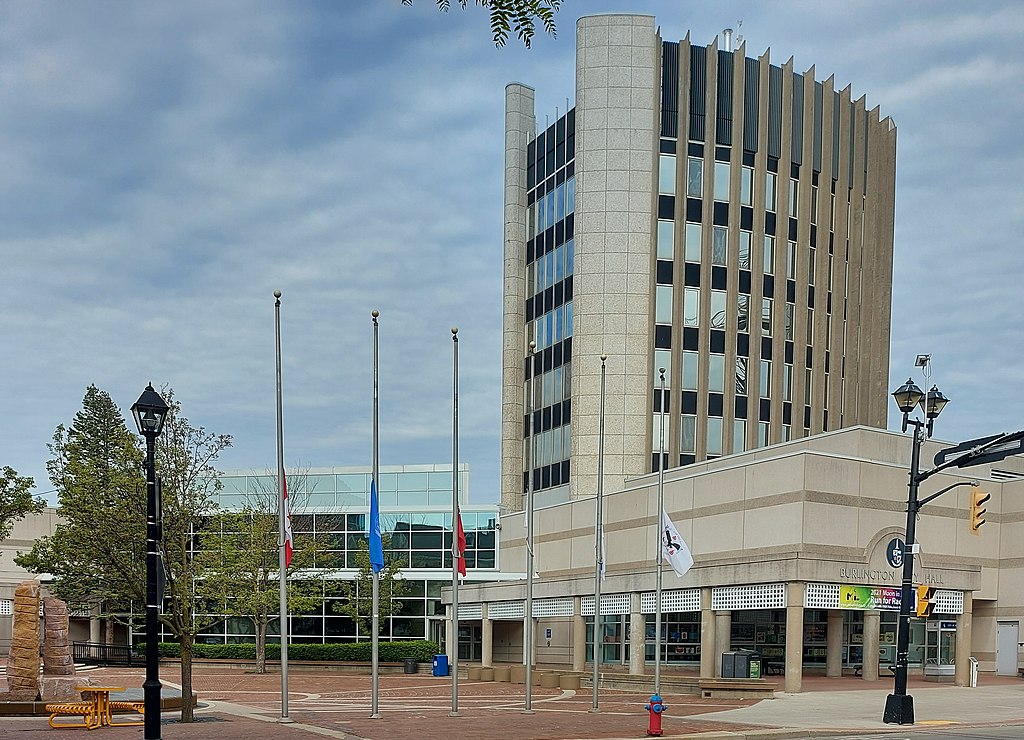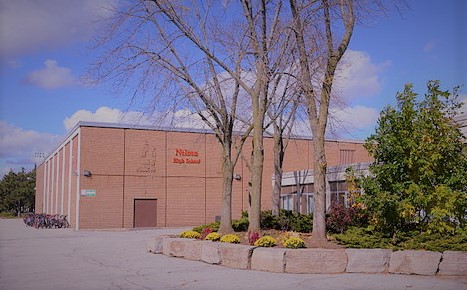By Jack Brittle, Local Journalism Initiative Reporter
On March 5, 2024, the Halton Catholic District School Board (HCDSB) held one of their bi-monthly board meetings.
Among the items on the agenda were the election of a representative to the Ontario Catholic School Trustees’ Association (OCSTA), a report on a pilot project of an Indigenous-themed grade 11 English course and its future, and the introduction of three new student trustees for the 2024–25 school year.
Halton Hills trustee Janet O’Hearn-Czarnota was unanimously re-elected as the OCSTA representative for the HCDSB, after serving in the role for the previous two-year term. She was also the only trustee nominated.
HCDSB is allocated one representative for the publicly funded association which “provides the provincial voice, leadership and service for elected Catholic school trustees to promote and protect publicly funded Catholic education in Ontario,” according to the OCSTA website.
After the vote was held and the election was completed, superintendent Jeff Crowell presented a report on a pilot project involving a grade 11 Indigenous Education course titled “English: Understanding Contemporary First Nations, Métis, and Inuit Voices.”
The course has been offered as an elective by the board since 2015 but this pilot experimented with replacing the traditional grade 11 English course at four schools across the board (Holy Trinity, Notre Dame, St. Ignatius of Loyola, and St. Katei Tekakwitha).
Crowell addressed some parents’ concerns about the course in his report.
“Some parents felt we should stick to the traditional grade 11 course, but we feel that expanding this course to all of our secondary schools demonstrates a clear and ongoing commitment to Truth and Reconciliation, allowing all students to learn about Indigenous history, perspectives, and culture, as well as their own responsibility as Canadians and as Catholics towards Truth and Reconciliation,” Crowell said.
“Other feedback from some parents suggested we stick to the more traditional literature,” Crowell said.
“There are many opportunities for students to be exposed to traditional literature and a wide variety of texts,” he continued. “A few parents expressed concerns about the skill development of students. I can assure you that the skills that are in the grade 11 English course are identical to the skills and the requisite knowledge in the grade 11 MBE course. So students are well prepared for grade 12 English by taking the grade 11 Indigenous Education [course].”
Crowell said that considering the feedback the board received from students and teachers, they plan to replace the current grade 11 English course with the Indigenous-themed one at all of the secondary schools across the HCDSB in the next school year.
Sherry Saevil, the Indigenous Education advisor for HCDSB, commented on the importance of teaching kids about Indigenous history and cultures.
“We had a fantastic speaker last week and his name was Cadmus Delorme, and he said that this is the first generation of kids that are going to be told the truth about what happened with Indigenous people,” Saevil said. “So we’re having those conversation scenes at the dining room table with our children and understanding what they’re learning.”
Saevil spoke about the fact that this course is important because it highlights many literary works that are underrepresented in the educational system and also because it prepares students for post-secondary studies.
“We have a plethora of Indigenous authors, writers, poets, and playwrights that haven’t had the venue to be able to teach our youth,” Saevil said. “What we’re providing to our students is that support for when they do go to university or college because most universities and colleges right across the country now require you to have an Indigenous Studies course before you get your diploma, your certificate, or your degree. So just by having that extra little bit of support or focus within our students is perfect.”
Student trustee Arianna Chua of St. Francis Xavier Catholic Secondary School echoed the belief in the importance of the course.
“I think we all know that reconciliation is not [merely] an option,” Chua said. “We should not be able to choose whether or not we want to learn about Indigenous education or what Canada has done to Indigenous people. And if we keep this as an elective, we are deliberately allowing reconciliation to be optional, which is something that we should not be doing.”
Oakville trustee Robert Kennedy cited the results of the polling data and posed a question to Crowell about why the majority of respondents were not happy with the course.
“It says ‘many of the respondents indicate they were very satisfied with the course,’” Kennedy said. “I see the word ‘many,’ but that was about 25%. And then I see that about 51% say they’re dissatisfied with the course. Do we have any comments on that? And why do you think it’s a two-to-one ratio?”
Crowell responded by saying that whenever the curriculum is changed, people are hesitant.
“What I would say is, in my experience in implementing curriculum, any time you’re presenting something new, there’s going to be pushback,” Crowell said. “There’s going to be, ‘Why aren’t we doing it the old way? We liked it better the other way.’ So honestly, I’m not overly surprised. It doesn’t mean it’s not the right thing to do. It means we have work to do when we implement it. And the feedback that we get from surveys like this definitely helps us get better at that job.”
“We have not had any significant pushback on this,” Crowell continued. “The concerns that teachers have raised are around training and resources. [They said] ‘If you can give us the training and you can give us the materials, we’ll happily be able to deliver this curriculum.’ There’s a shared sense of importance.”
The final piece of the March 5 agenda was introducing the three new student trustees who will begin their terms at the beginning of the next school year.
Each school puts forth one candidate for the position, and the Student Senate votes on the matter.
For Burlington, Isabel Yeboah was elected, a grade 10 Honour Roll student from Notre Dame.
Superintendent Em Del Sordo spoke about Yeboah’s qualifications for the role.
“She actively participates in various social justice initiatives and a wide range of other activities such as Black Students Union (BSU), basketball, track and field, and art,” Del Sordo said.
For North Halton, grade 11 Honour Roll student Sophia Philbert of St. Francis Xavier was chosen.
“She demonstrates a high level of commitment to her coursework and the ability to manage the many extracurricular tasks she’s involved with, including the Halton Catholic District School Board Student Senate, The Saint FX Distributive Education Clubs of America, the volleyball team, and the Saint FX BSU,” Del Sordo said.
The final spot was taken by Lauren McGuire, who is already serving on the board and is a grade 11 Honour Roll student from St. Ignatius of Loyola.
“Lauren serves as a student senator co-lead and contributes to the Halton Catholic District School Board-wide Equity Group and the EQAO Student Advisory Group, a provincial-level committee. This past year, Lauren has been a member of the Student Trustee Association. Additionally, she’s been a member of the Best Buddies, the Debate Team, and the ‘Reach’ trivia team’s junior captain,” Del Sordo said.




